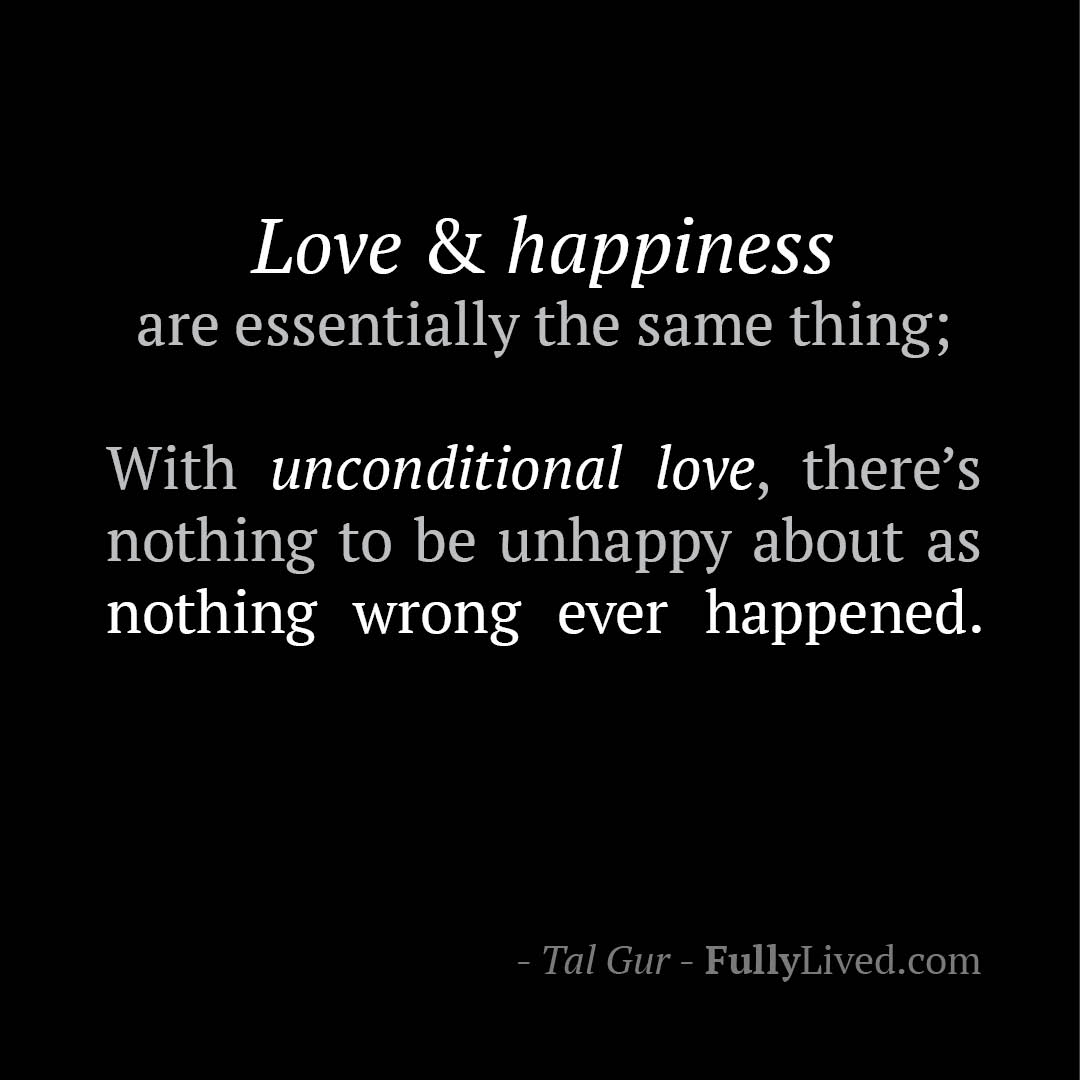Love & happiness are essentially the same thing; With unconditional love, there’s nothing to be unhappy about as nothing wrong ever happened.
This quote offers a perspective of life that's about choosing love and happiness at every turn, despite any obstacles or trials we may face. It refers to the deep interconnection between the two. You see, love, in its truest form, tends to foster happiness. When we genuinely love, we create a space of positivity, contentment, and joy, not just for ourselves, but also for those around us. So, in that way, love becomes a direct path to happiness.
The second part, "With unconditional love, there's nothing to be unhappy about as nothing wrong ever happened," emphasizes the power of unconditional love, which is the purest form of love that asks for nothing in return. It's the kind of love that doesn't fluctuate with circumstances or hinge on conditions—it simply exists, without boundaries or reservations.
When we love unconditionally, we embrace every aspect of life—the good, the bad, and the in-between. We don't categorize experiences as "wrong" or "right"; instead, we see them as part of our journey, our growth. In this perspective, no experience is truly a 'wrong' one; it's just another facet of our life's adventure.
This viewpoint can lead us to a state of unshakeable happiness because we no longer get hung up on perceived mistakes or mishaps. We love life in its totality, thus allowing happiness to permeate all aspects of our existence.
Is there a historical example that illustrates the message of the quote?
Various historical figures and spiritual teachings have emphasized the transformative power of love and the potential for happiness through unconditional love.
For instance, the teachings of figures such as Mahatma Gandhi and Martin Luther King Jr. emphasized the importance of love, compassion, and nonviolence as a means to achieve happiness and social change. They believed that unconditional love could lead to the resolution of conflicts and the realization of a more just society.
In the realm of philosophy, thinkers like Plato and Aristotle discussed the relationship between love and happiness. Plato's Symposium, for example, explores different aspects of love, highlighting its potential to inspire personal and social fulfillment. Aristotle, in his Nicomachean Ethics, argues that true happiness, or eudaimonia, is achieved through the cultivation of virtuous actions, including love and friendship.
These examples offer glimpses into historical perspectives on the connection between love and happiness and the potential for unconditional love to contribute to a more fulfilling life. It is worth noting that individual interpretations of love and happiness can vary, and different historical figures and teachings offer diverse insights on these topics.
*To obtain more inspiration and motivation to achieve your goals, you definitely want to check out my extensive list of growth goals. This page contains SMART goal ideas that can help you establish new aspirations and attain greater heights in your personal growth journey. I utilized this page myself to create my own list of 100 life goals, which I dedicated a decade to pursuing.
Chief Editor
 Tal Gur is an author, founder, and impact-driven entrepreneur at heart. After trading his daily grind for a life of his own daring design, he spent a decade pursuing 100 major life goals around the globe. His journey and most recent book, The Art of Fully Living, has led him to found Elevate Society.
Tal Gur is an author, founder, and impact-driven entrepreneur at heart. After trading his daily grind for a life of his own daring design, he spent a decade pursuing 100 major life goals around the globe. His journey and most recent book, The Art of Fully Living, has led him to found Elevate Society.























